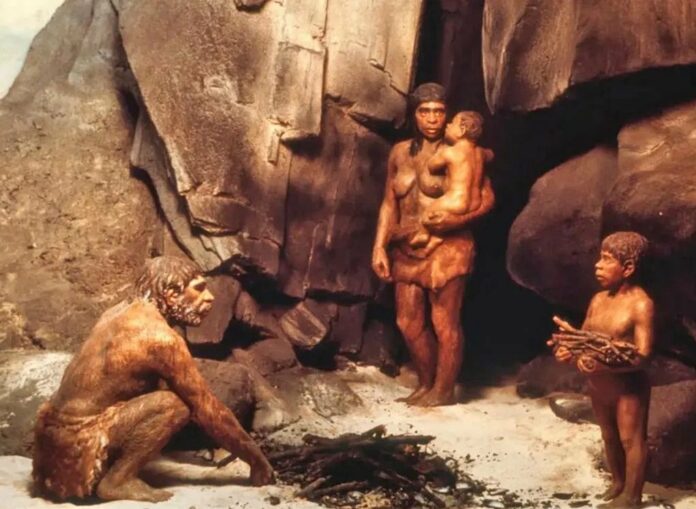In a groundbreaking study published in the journal Science Advances, archaeologists from Leiden University and collaborating researchers have uncovered compelling evidence that Neanderthals, our ancient relatives, acted as significant ecosystem engineers approximately 125,000 years ago. Through the use of fire to maintain open landscapes, they profoundly influenced their local environment.

Extensive Traces of Neanderthal Activity Found in Germany
The research, conducted at the Neumark-Nord lignite quarry near Halle, Germany, has yielded a wealth of data about the early environment and abundant traces of Neanderthal activities. Professor Wil Roebroeks, an archaeologist at Leiden University, explains, “Among other things, the researchers found the remains of hundreds of slaughtered animals, surrounded by numerous stone tools and a huge amount of charcoal remains.”
From Dense Forests to Open Spaces: Neanderthals’ Role in Landscape Transformation
The traces were discovered in an area that was covered by a forest ecosystem 125,000 years ago, inhabited by prey species and remarkable megafauna. The forest stretched from the Netherlands to Poland, with several lakes scattered throughout the region. Traces of Neanderthals were found on the shores of some of these lakes, coinciding with the transition from dense forests to expansive open spaces, partially due to fires. The evidence suggests that hunter-gatherers played a key role in maintaining open landscapes for at least 2,000 years.
Comparative Research Supports Neanderthals’ Impact on Ecosystems

To support this claim, Professor Corrie Bakels, a palaeobotanist from Leiden University, conducted comparative research. She found that at similar lakes in the vicinity, where the same animals thrived but Neanderthal traces were absent, the dense forest vegetation largely remained intact. These findings challenge the conventional wisdom that significant human impact on ecosystems began only with the advent of agriculture some 10,000 years ago.
Implications for Understanding Human History and Nature Restoration
These new research insights hold significance not only for archaeology but also for disciplines concerned with nature restoration. Roebroeks emphasizes, “It also adds something to the behavioral spectrum of early hunter-gatherers. They weren’t simply ‘primal hippies’ who roamed the landscape picking fruit here and hunting animals there. They helped shape their landscape.”

The revelation of Neanderthals as ecosystem engineers adds a new layer to our understanding of our ancestors and their intricate relationship with the world they inhabited. As we continue to explore our past, it becomes increasingly evident that our ancient predecessors played a far more influential role in shaping their surroundings than previously thought.

